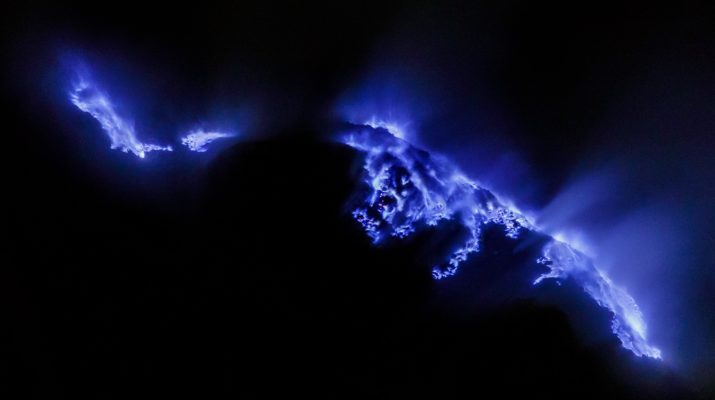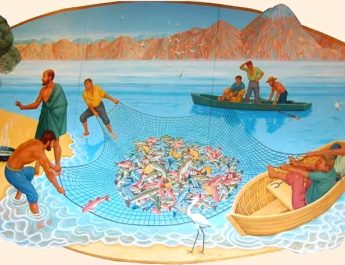Ezekiel 33:7-11
Proper 18A
7 So you, mortal,A I have madeB a sentinelC for the houseD of Israel;E
A “mortal” = ben + adam. Literally, “child of humanity.” Ben is from banah (to build or obtain children). This is son, age, child. It is son in a literal or figurative sense. Adam is perhaps from adam (to be red, make ruddy); related to adamah (ground, dirt, earth). This is man, humankind, also Adam’s name. It refers to a human individual or humanity.
B “made” = natan. This is to give, put, set, offer. It is to give literally or figuratively.
C “sentinel” = tsaphah. This is to keep watch or spy – to look out. Properly, it refers to leaning forward to look out. It implies observing or awaiting.
D “house” = bayit. Related to “mortal” in v7. Probably from banah (see note A above). This is house, court, family, palace, temple.
E “Israel” = Yisrael. From sarah (to persist, exert oneself, contend, persevere, wrestle, prevail) + El (God or god). This is Israel, meaning God strives or one who strives with God; new name for Jacob and for his offspring. This refers to the people and to the land.
whenever you hearF a wordG from my mouth,H you shall give them warningI from me.
F “hear” = shama. This is to hear, call, consent, or consider. It implies listening intelligently, giving attention, and, because of these two factors, obedience and action are often implied.
G “word” = dabar. From dabar (to speak, declare, discuss). This is speech, a word, a matter, an affair, charge, command, message, promise, purpose, report, request. It is a word, which implies things that are spoken of in a wide sense.
H “mouth” = peh. This is mouth in a literal or figurative sense. So, more literally, it can be beak or jaws. More figuratively, it refers to speech, commands, or promises.
I “give…warning” = zahar. This is to be a light, shine, or gleam. Figuratively, it can refer to enlightening, warning, or teaching. It is to teach by giving caution.
8 If I say to the wicked,J “O wicked ones, you shall surely die,”K and you do not speakL to warnM the wicked to turn from their ways,N
J “wicked” = rasha. This is morally wrong so it refers to someone who is actively bad as wicked, criminal, an evil person, offender, condemned, or ungodly.
K “surely die” = mut + mut. This is to die in a literal or figurative sense. It can also refer to being a dead body. The word is repeated twice – the first time as an Infinitive Absolute. The Infinitive Absolute serves to emphasize the sentiment of the word. It is rather like Foghorn Leghorn’s speech pattern, “I said, I said.”
L “speak” = dabar. Related to “word” in v7. See note G above.
M “warn” = zahar. Same as “give…warning” in v7. See note I above.
N “ways” = derek. From darak (to tread, march, to walk. Can also mean affixing a string to a box since one needs to step on it to bend it in the process; so also an archer). This is a road as a thing that is walked on. Can be used figuratively for the path that one’s life takes or how one chooses to live one’s life.
the wicked shall die in their iniquity,O but their bloodP I will requireQ at your hand.R
O “iniquity” = avon. Perhaps related to avah (to bend, twist, be amiss). This is sin, mischief, guilt, fault, punishment for iniquity, or moral evil.
P “blood” = dam. Perhaps from damam (to cease, be or become mute, silent, still, cut off, hold peace, be astonished, die). This is blood, bloodshed, bloodguilt, lifeblood, and death. It is used for people and animals. More often blood from a wound or the blood of the innocent. Used figuratively for violence or for wine. Closely tied to life and death.
Q “require” = baqash. This is to seek, ask, desire, or request. It can be any kind of searching. It can also mean to worship or pray – implies a striving for.
R “hand” = yad. This is hand, ability, power. Hand in a literal sense, but also what one can do or the means by which one does it.
9 But if you warn the wicked to turnS from their ways and they do not turn from their ways, the wicked shall die in their iniquity, but you will have savedT your life.U
S “turn” = shub. To turn back, return, turn away – literally or figuratively. Doesn’t necessarily imply going back to where you started from. This is also the root verb for the Hebrew word for repentance “teshubah.”
T “saved” = natsal. This is to snatch someone or something away in a good sense – as rescue, defend, or deliver – or in a bad sense – as strip or plunder.
U “life” = nephesh. Related to naphash (to refresh or be refreshed). This is soul, self, person, emotion. It is a breathing creature. Can also refer to appetites and desires.
10 Now you, mortal, say to the house of Israel: ThusV you have said: “Our transgressionsW and our sinsX weigh upon us, and we waste awayY because of them; how then can we live?”Z
V “thus” = ken. Perhaps from kun (properly, in a perpendicular position; literally, to establish, fix, fasten, prepare; figuratively, it is certainty, to be firm, faithfulness, render sure or prosperous). This is to set upright. Generally used figuratively to mean thus, so, afterwards, rightly so.
W “transgressions” = pesha. From pasha (to rebel, offend, quarrel; making a break from proper authority so can also refer to an apostate). This is transgression, rebellion, or sin. It could be a revolt on a national scale or an individual moral one.
X “sins” = chatta’ah. From chata’ (to miss or go wrong and so to sin, bear the blame; it can also include the sense of forfeiting or lacking). This is sin itself as well as punishment for sin. It is sometimes used specifically to refer to sin that is habitual.
Y “waste away” = maqaq. 10x in OT. This is to melt, decay, wear away, or waste away. Figuratively, it could be to corrupt, flow, or vanish.
Z “live” = chayah. This is to live or keep alive in a literal or figurative sense. So, it can be revive, nourish, or save.
11 Say to them: As I live,AA saysBB the LordCC God,DD
AA “live” = chay. Related to “live” in v10. From chayah (see note Z above). This is alive, living, lifetime. It can also be used to describe someone’s age. It can refer to animals, plants, water, or a company or congregation of people. It is life in a very broad sense.
BB “says” = neum. From na’am (to speak a prophecy; properly, to whisper, which implies saying an oracle). This is an utterance or speaking an oracle.
CC “Lord” = Adonai. From adon (lord, master, owner); root means to rule or be sovereign. This is the actual Hebrew word for Lord used (in a different form) of humans and (in the present form) of God. It means someone who is in control.
DD “God” = YHVH. From the same as YHVH (the name of the God of Israel, the self-existent and eternal one, the tetragrammaton; pronunciation has been lost to time so “Lord” is generally used in its place); {from havah (to be, become) or hayah (to come to pass, become, be)}. This is a secondary spelling of the Lord, the name of the God of Israel. It has the same meaning.
I have no pleasureEE in the deathFF of the wicked but that the wicked turn from their ways and live; turn back, turn back from your evilGG ways, for why will you die, O house of Israel?
EE “have no pleasure” = chaphets. Properly, this means inclined towards or bending to. Figuratively, it means to desire, delight in, or be pleased with.
FF “death” = mavet. Related to “surely die” in v8. From muth (see note K above). This can be death, deadliness, the dead, or the place where the dead go. It can be used figuratively for pestilence or ruin.
GG “evil” = ra’. From ra’a’ (to be evil, bad, afflict; properly, to spoil – to destroy by breaking into pieces; figuratively, to cause something to be worthless; this is bad in a physical, social, or moral sense; that which displeases, to do harm or mischief, to punish or vex). This is bad, disagreeable, that which causes pain, misery, something having little or no value, something that is ethically bad, wicked, injury, calamity. This refers to anything that is not what it ought to be – a natural disaster, a disfigurement, an injury, a sin.
Image credit: “The Blue Fire of Kawah Ijen 1” in Indonesia by Thomas Fuhrmann, 2018.




